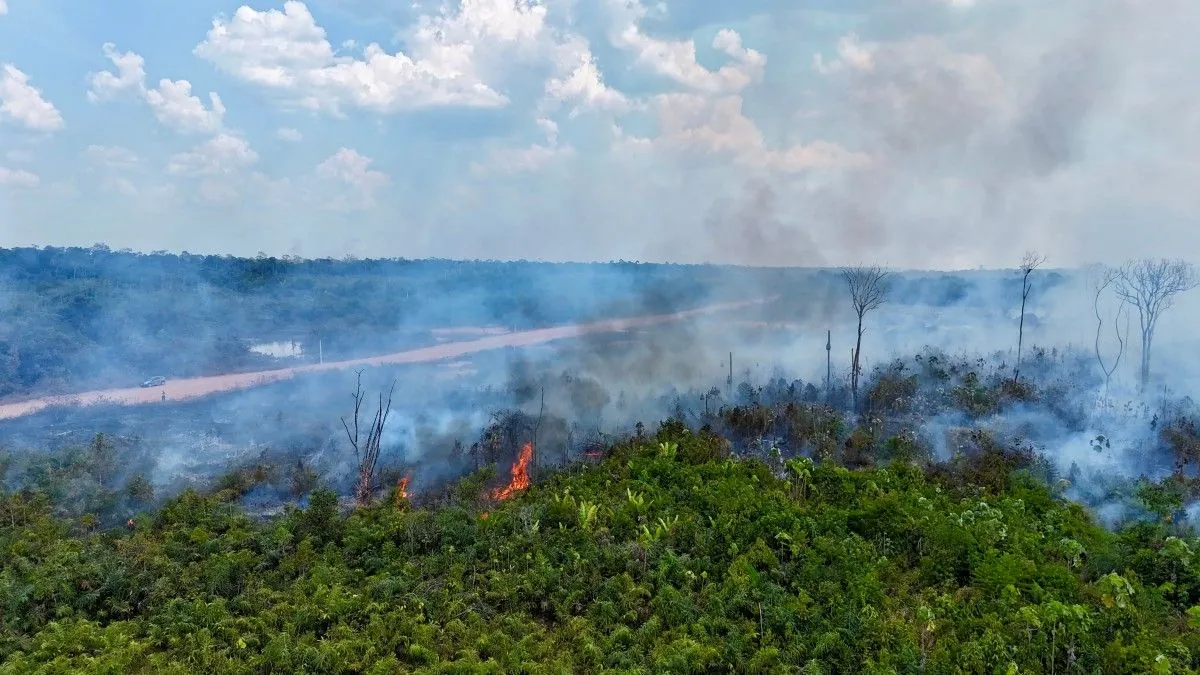In a concerning development, wildfires have erupted across Sao Paulo state, Brazil's most populous and economically significant region. As of August 24, 2024, the blazes have resulted in at least two fatalities and prompted authorities to place 36 cities on high alert.
Tarcísio de Freitas, the governor of Sao Paulo state, has announced a substantial mobilization effort to combat the fires. Approximately 7,300 government workers and volunteers have been deployed to contain and extinguish the flames. The governor expressed concern about potential wind conditions that could further exacerbate the situation.
The wildfires are primarily affecting rural areas outside the city of Sao Paulo, which is home to over 11 million residents and serves as a major economic hub. While the metropolis itself has largely been spared, social media footage reveals smoke-filled skies and burning vegetation along highways in the surrounding countryside.
A tragic incident occurred two days ago in the city of Urupes, where two employees at an industrial facility lost their lives while attempting to combat a fire. Details surrounding this event remain limited.
The current wildfire crisis is unfolding against a backdrop of severe environmental conditions. A prolonged drought and intense heatwave have created ideal conditions for fire spread. These circumstances highlight the complex interplay between climate patterns and fire risk in the region.
Sao Paulo state, known for its diverse climate ranging from tropical to subtropical, is home to portions of the Atlantic Forest, a biodiversity hotspot. The ongoing fires pose a significant threat to this ecologically crucial area. Additionally, as a major agricultural producer, particularly for coffee and sugarcane, the state faces potential economic repercussions from the wildfires.
The Brazilian Institute of Space Research (INPE), which monitors forest fires using satellite technology, has reported an alarming 4,973 fires in the region since the beginning of 2024. This figure represents the worst wildfire season in decades, according to local news organization Folha de S.Paulo.
As authorities grapple with the current crisis, it's worth noting that Sao Paulo state has implemented various environmental protection programs in recent years. However, the scale of the present wildfires underscores the ongoing challenges in balancing rapid industrialization, urbanization, and environmental conservation.
The situation in Sao Paulo state serves as a stark reminder of the increasing global wildfire risk associated with climate change. As the most populous state in Brazil, with an economy larger than many countries, the impact of these fires extends beyond immediate environmental concerns to potentially affect millions of residents and various sectors of the economy.
"We are working tirelessly to contain the advance and put out these fires."
As the situation continues to evolve, local and federal authorities are intensifying their efforts to bring the wildfires under control and mitigate their impact on both rural and urban areas of Sao Paulo state.
